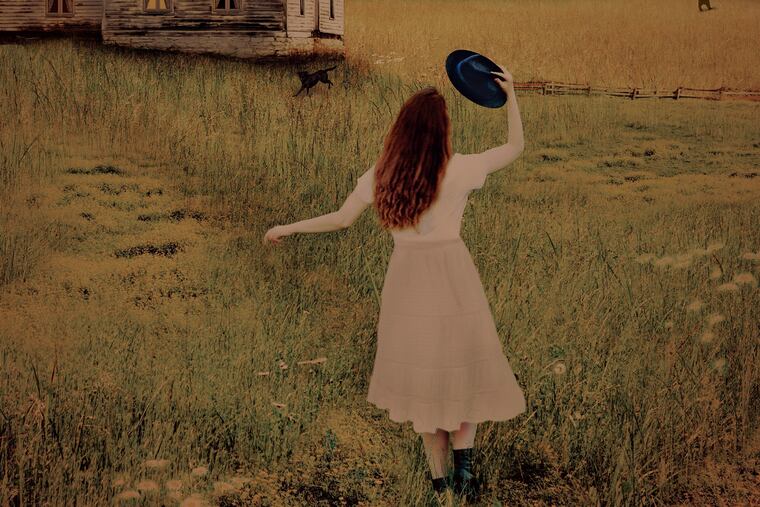Album reviews: ‘Women Sing Waits,’ Strange Ranger, Jason James
What you should, or should not, be listening to this week.

Various Artists
Come On Up To the House: Women Sing Waits
(Dualtone *** 1/2)
Tom Waits’ stature as a Beat poet dirtbag balladeer and mischievous performance artist is secure. But how much is his music actually listened to? He doesn’t tour frequently enough to keep his songs top-of-mind, and the scrap metal at the back of his throat is enough to scare away anyone seeking a soothing experience.
All of which makes Come On Up to My House an excellent idea. Produced by former Del Fuego and Tom Petty biographer Warren Zanes, it gathers together a multi-generational group of women tasked with bringing Waits’ music to a new audience. Those giving his searing, scarred songs a more melodious hearing include more-or-less contemporaries such as Rosanne Cash and Patty Griffin, as well as millennial upstarts like Angie McMahon and Phoebe Bridgers.
The latter two turn in spare, heart-rending versions of songs from 1999’s Mule Variations. Australian songwriter McMahon quietly sings the bereft lover’s lament “Take It With Me.” Bridgers coaxes all the sadness out of “Georgia Lee,” about a 12-year-old girl found murdered in 1999 near Waits’ northern California home. “Why wasn’t God watching?” Bridgers sings in an affecting performance. “Why was God not there for Georgia Lee?”
Also noteworthy is Corinne Bailey Rae’s spin on “Jersey Girl,” the Waits song that people think Bruce Springsteen wrote, and Iris DeMent’s countrified “House Where Nobody Lives.” Best of all is sisters Shelby Lynne and Allison Moorer’s spirited take on “Ol’ 55,” which captures the life-affirming buzz of a romantic gem from 1973‘s Closing Time, the prime of Waits‘ boozy, beautiful loser period. — Dan DeLuca
Strange Ranger
Remembering the Rockets
(Tiny Engines *** 1/2)
Before settling in Philadelphia, Strange Ranger had roots in Portland, Oregon, where they released two raw-nerved albums (the first under the name Sioux Falls) that seemed descendants of Pacific Northwest luminaries such as Built to Spill. Remembering the Rockets, the third full-length from the Isaac Eiger-fronted quartet, came out in July, and it radically reinvents the band’s sound and turns it into something slightly familiar but inspired in new ways.
Echoes of the Cure wend through Remembering the Rockets — in the sunny melody of “Sunday,” which seems inspired by “Friday I’m in Love”, and in the somber gloom and layered guitars of “Message to You” (sung by keyboardist Fiona Woodman) — but never in a slavish way. The songs are patient, with melodies floating atop drum machine loops, but they often burst into chiming climaxes. Eiger sings in a thoughtful, lilting voice, but his lyrics often reveal anxieties about starting a family on a planet that seems doomed. Remembering the Rockets is lovely on the surface, but it seethes with tension, too. — Steve Klinge
Strange Ranger plays at 7 p.m. Friday, January 17, Everybody Hits, 529 Girard Ave. $10. 215-769-7500, everybodyhitsphila.com
Jason James
Seems Like Tears Ago
(Melodyville *** 1/2)
George Jones. Hank Williams. Buck Owens. You’ll hear echoes of them all, and more, in the fantastic second album by Jason James. The young Texan doesn’t just replicate the steel-and-fiddle-driven sounds of classic country with unerring and uncompromising precision. He has thoroughly absorbed them as a vehicle for his own artistic expression, one that, in the best country tradition, taps into deep wells of real emotion.
He opens with the title song, a mid-tempo ballad in which the phrasing he uses with his warm baritone immediately recalls the clenched intensity of Jones. It also sets the table for an album that delivers a lot of heartache, with other Possum-like numbers such as “I Miss You After All,” “Achin’ Takin’ Place,” and “Ole Used to Be.”
“We’re Gonna Honky-Tonk Tonight” is a lively two-stepper that’s cousin to Hank’s “Honky Tonkin,” and the Cajun-flavored “Cry on the Bayou” brings to mind the Hillbilly Shakespeare’s “Jambalaya.” Meanwhile, the chugging “Move a Little Closer” nods to Buck and Bakersfield and, like the title song, showcases James’ way with country wordplay: “I got more bags under my eyes than you left with last night.”
The happiest song here is “Simply Divine.” Which is also a good description of this album. — Nick Cristiano